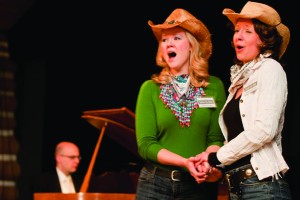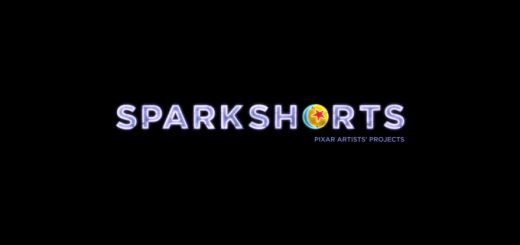Phantom haunts Cowtown
Opera company’s new twist on musical classic
Leah Fink
Staff Writer
Andrew Lloyd Webber’s Phantom of the Opera has worldwide fame and popularity, having run over 10,000 shows on Broadway, and is the highest grossing theatrical performance in history.

The Cowtown Opera Company is dedicated to bringing a new image to the Calgary opera scene with events like Phantom (not pictured above). Photo courtesy: Cowtown Opera Company
Yet Calgary’s Cowtown Opera has created something completely new: the very first live, sing-along version of the musical. This may seem like quite a feat, but Cowtown Opera was able to successfully make an audience sing some of these quite difficult songs, with a good result.
After each song was performed, audience members were (strongly) encouraged to sing parts of the song when the lyrics came up on a screen at the front. That way, even those who may not have been very familiar with the music were able to understand and join in.
The singing featured the best known parts of the songs, and parts that would be easier for the general public. Phantom was also made easier to sing, as all of the songs featured male and female actors singing, guiding and allowing the audience to use a higher or lower range.
The professional singers in the show were all fantastic performers, with education and experience from all over Canada and the world. A particular enjoyment was in the extreme opera diva “Carlotta” and her over-the- top drama.
The fantastic singers are one of the reasons that Cowtown Opera was created. There are so many talented and professionally trained opera singers in Calgary and Canada, yet Calgary Opera only puts on three shows a year.
Most of the cast of Cowtown’s performances are locals, al- though they hold auditions across Canada.
The artistic director of the sing-along, Michelle Minke, is also the creator of the Cowtown Opera company. Although they have been running shows for over two years, Phantom is a special musical for Minke.
In Grade 5, Phantom was the first theatrical performance she saw, and soon after she was singing along with the cassette. The show inspired Minke, igniting a passion for the theatre and the human voice.
Now, her goal is to spread that love of theatre. Cowtown wants to make opera accessible, and to “try to put opera where people are not expecting it.” This includes performances in malls, at the museum or company func- tions where the opera singers act as waiters who suddenly burst into music.
Not all of their music is sing- along either. The type of operatic shows vary, but they are meant to be enjoyable and accessible.
All of the shows are in English, and keep a fun attitude, but still fulfill people’s expectations of popular operas featuring well-known pieces. Minke said Cowtown wants to stretch boundaries, and make opera more edgy, modern and relatable to everyone.
They want people to realize that opera does not have to be an obscure art form, in another language: serious, and impossible to understand.
Opera can be the fun telling of a story, with excellent singers encouraging you to explore a new world. Their performance of Phantom of the Opera displayed this incredibly.




